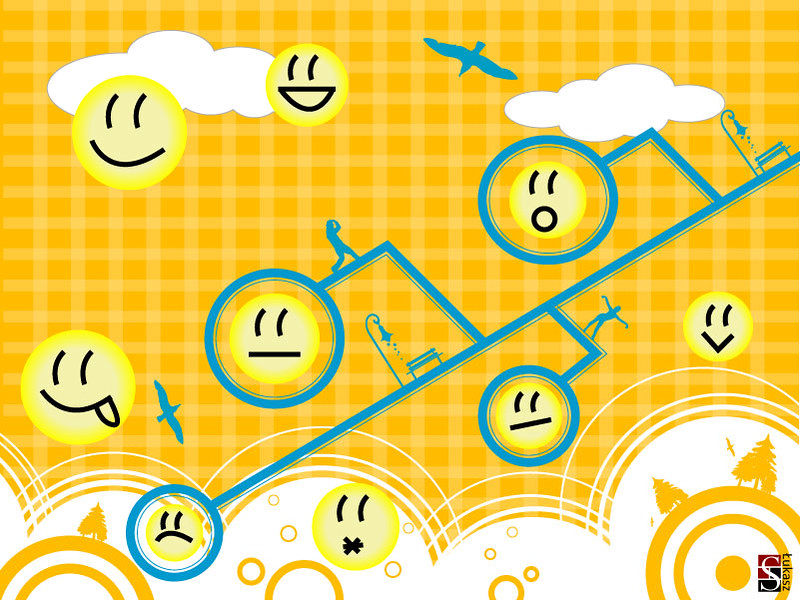Sometimes, it is easy for most individuals, especially hearing individuals to underplay the purpose of expressing their emotions during spoken conversations/communications. They think the words should be enough to pass down the message that they intend.
Expressing one’s emotions is core to efficient communication and this is no different for the deaf individual because deafness does not suddenly mean an individual has lost his or her humanity. Part of being human is the ability to first recognize how you feel and express properly what you are feeling.
Let us see why it is essential for humans to express how they feel (a combination of the chemical and biological components of man’s makeup) and how deaf individuals in a world that is majorly based on the spoken language experience and express their emotions.
Deafness and Emotional Development
Image by Tarek Fahmyloki0z on Openverse
When hearing loss occurs at birth or an early age, it seems quite easier to cope with than when one experiences it much later in life. We’ll look at the emotional development of deaf individuals in adulthood and generally.
In Adulthood
Adult deaf individuals experiencing hearing loss much later in their lives (and not from birth), go from not believing it’s actually happening to them to being angry it is happening to them to getting sad, depressed, and frustrated about it, to finally coming to terms with it. These are considered the five major stages of grief. Although one’s hearing is not a “human being”, hearing loss is what it is—a loss, and there is nothing wrong in grieving it.
Once these individuals can accept their hearing conditions, they begin to utilize the tools available to them to function normally as much as they can.
When Deafness Occurs At An Early Age
It is generally perceived that deaf children are less emotionally developed than hearing individuals but how true is this? If a child is deaf from birth or quite early in their lives and is introduced immediately to a mode of communication such as ASL and made to understand that they are not less human because of their hearing loss, nothing stops that child from developing well emotionally. What usually contributes to the perceived lower emotional development among deaf kids/adolescents are the other factors responsible for emotional development.
Simple Ways Deaf Individuals Express Their Emotions
Do deaf individuals feel? Yes. That means there is no question of if they can experience emotions like have been hinted at in the introduction to this article and the reason is because they are humans. So, let’s see the ways they successfully express the emotions that they feel.
They Use Sign Language
ASL has the power to grant its users the ability to communicate how they feel basically with their face and hand gestures. While a deaf person’s ears may not be functioning properly, this does not mean that other body parts, particularly the eyes, and hands, cannot be trained to perform some necessary functions. Deaf individuals who are super proficient in the use of ASL are able to express themselves as comfortably as hearing individuals would.
Some Deaf Individuals Make Use of Written Communication
Writing is a useful communication tool that hearing individuals employ as well as deaf individuals. When people’s feelings are just all over the place, sometimes, they prefer to write what they feel rather than say it or use sign language to express it. Several books (fiction and nonfiction are on people’s emotions. Using the writing tool will always be an option for hearing individuals and deaf individuals
They Might Use Art (Drawings, Music, etc)
Just like writing, there are other forms of art that can be used by deaf individuals to express what they feel. Sometimes, an image can tell you if the artist was sad or happy while they were working on the image.
It could be that easy sometimes to capture one’s feelings through drawing/pictures. Just as you can also tell one’s feelings from the song one listens to at a particular time or the song one writes at a particular time, that is assuming that they are songwriters.
Are you wondering how deaf individuals listen to music, you can click here to find out.
Why it is Important for Humans to Appreciate the Art of Expressing Their Emotions
Image by Ars Electronica on Openverse
Imagine a world where people said what they thought without lacing such words with how they felt. Would it be wrong to term such a world as a robotic one? If that is the case then, let’s examine the essence of emotions in our everyday communication
- The more emotions humans are able to show the more mental and physical relief they feel. This includes fewer chances of depression, anxiety, and digestion problems.
- People who freely express what they feel make better companions because it is believed that their words hold no pretense.
- People who can express their emotions are those who are aware of their own identities and are not afraid of them. On the other hand though, those who bottle up their emotions are seen as less confident individuals even if they are not.
Yet, one must not mistake the ability to express emotions for expressing them unsuitably, at the wrong time and place. This is where emotional intelligence comes into play and why people are always encouraged to be emotionally intelligent.
Why do you think that it is often said that one is wrong to give no consideration to how others feel concerning how their words are being received? This shows the value of emotion in communication.
Conclusion
As much as people are constantly advised not to bottle in their emotions, the culture they come from and the one that they might find themselves in will remain a major influence to the extent by which they can truly express themselves.
Other factors such as one’s personality and life experiences can also hinder or foster people’s journey on emotional expression. So, in treating deaf individuals as normal whole humans, these factors should be considered.
Are you struggling with emotional expression? Or do you know a deaf individual or individuals whose emotional expressions you would like to understand as they communicate in ASL? Engage in ASL learning today with ASL learning materials from SignBee Academy. You can become a better individual and friend for it.
Thumbnail Photo Credit to: Image by Lucas on Openverse






